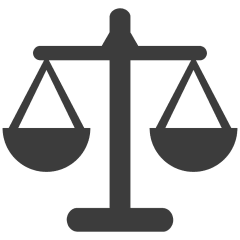Best Jobs for Graduates of Economics
Analytical thinking abilities, a love of numbers, and a mastery of visual data—these are just some of the skills students gain during an economics degree. People with this educational background tend to be sharp and critical, adept at interpreting complex numerical systems, statistics, and relationships. But economics isn't just about numbers. Over the course of their degree, students in this major learn to organize and synthesize data both visually and verbally. As a result, many economics graduates are excellent communicators, with a talent for breaking complicated calculations down into simple, easy to understand language.
Combined, these qualities make economics majors highly employable—within their field, but also in a variety of other exciting industries. Let's take a look at some of the most popular careers for economics majors, and whether they might be a fit for you.
This article will be covering the following careers:
| Career | Avg Salary | Satisfaction | Your Match |
|---|---|---|---|
| Economist | $95k | 3.1/5 | |
| Business Analyst | $76k | 3.0/5 | |
| Lawyer | $129k | 2.7/5 | |
| Financial Advisor | $57k | 2.7/5 | |
| Accountant | $60k | 2.6/5 | |
| Financial Analyst | $74k | 2.8/5 | |
| Sales Manager | $75k | 2.8/5 | |
| Entrepreneur | $71k | 4.0/5 | |
| Project Manager | $85k | 3.1/5 | |
| Management Consultant | $136k | 3.3/5 | |
| Consultant | $93k | 3.3/5 | |
| Computer Programmer | $93k | 3.3/5 |
Are these careers suited to you? Our comprehensive career test measures your personality traits and interests and matches you to over 800 careers.
1. Economist
For economics students who truly love their subject, a career in academia is a natural next step. Professional economists are highly trained experts who study the distribution and production of resources, services, and goods. Many work in university settings, teaching courses on economic science and conducting research in their field. The path to getting hired in this career is long and challenging, usually requiring a PhD or at least a Master's degree in the subject, as well as relevant experience. But for someone who is truly fascinated by economic systems, nothing could be more rewarding.

Economist
Economists study, analyze, and interpret economic data and trends to understand and predict the behavior of economies.
2. Business Analyst
Business analysts work with businesses to help them maximize their efficiency and productivity through data analysis. Straddling the line between business and IT, they advise their clients on how to improve their software, processes, products, and services. Economics degree majors, with their wide-ranging understanding of monetary systems and their strong data skills, can truly thrive in this engaging career.
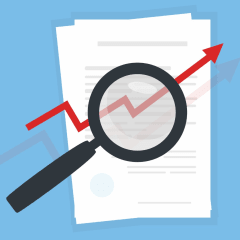
Business Analyst
A business analyst helps to bridge the gap between business needs and technological solutions within an organization.
3. Lawyer
It may come as a surprise, but economics majors can make excellent lawyers. Great lawyers are able to research, investigate, and synthesize complex information, and then communicate their findings to a judge or jury in a clear, compelling manner. In this challenging career, economics graduates can put their sharp problem solving skills to the test as they prepare and try their cases. Although an understanding of economics is especially beneficial in tax law, personal injury, corporate law, and medical malpractice, it can come in handy in other legal contexts as well.
4. Financial Advisor
Although a bachelor's in economics isn't required to become a financial advisor, it's a major asset. Professionals in this field provide expert guidance to their clients to help them meet their long- and short-term monetary goals. Financial advisers can be found in both private and public firms, serving a clientele that includes everyone from single mothers to first-time business owners. This job requires several qualities that economics majors possess: an awareness of economic trends, excellent communication skills, and an analytical mind.
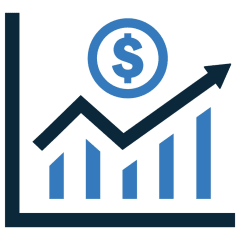
Financial Advisor
A financial advisor provides financial guidance and advice to clients.
5. Accountant
Accountants play an essential role in the financial success of their clients by helping them document, organize, and reconcile their monetary operations. Whether they're working for a large firm or on a freelance basis, the best accountants tend to posses excellent numerical and social skills. Many individuals with an economics degree find joy in this detail-oriented career, using their love of mathematics and critical thinking to help their clients achieve better financial health.
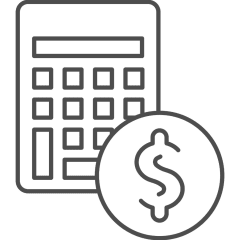
Accountant
An accountant manages and analyzes financial records, prepares financial statements, and ensures compliance with regulatory requirements.
6. Financial Analyst
Financial analysts are savvy researchers who help companies of all sizes make better monetary decisions. These skilled professionals analyze financial data, assess current and future economic trends, and make recommendations for their clients based on profitability, stability, and solvency. Economics majors will enjoy putting their knowledge of financial trends and data to the test in this rewarding career. But they'll also thrive at the communications aspects of the role: meeting with clients, writing reports, and presenting their findings with clarity and creativity.

Financial Analyst
Financial analysts are responsible for evaluating financial data, market trends, and investment opportunities to provide valuable insights for decision-making.
7. Sales Manager
The best sales managers excel at two things: understanding numbers and understanding people. These highly personable professionals can be found in many industries, guiding sales teams of all sizes towards success. In addition to managing sales staff, they also assess financial statements, balance budgets, and implement new systems to streamline the sales process. Investigative, hard-working, and communicative, many economics majors will find success in this career.
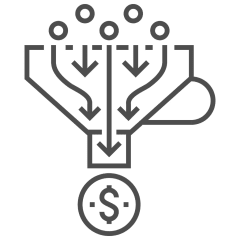
Sales Manager
A sales manager is responsible for overseeing and leading a team of sales representatives to achieve revenue and sales goals for a company or organization.
8. Entrepreneur
Becoming an entrepreneur isn't for everyone, but it can be an ideal fit for individuals who love to solve problems, take action, and work on their own terms. Economics students possess a valuable awareness of financial systems and trends, allowing them to make more strategic decisions as they bring their entrepreneurial visions to life. In this varied and ever-changing career, they'll excel at the day-to-day financial tasks involved in managing a business, but also the social ones.

Entrepreneur
An entrepreneur is an individual who takes on financial risks in order to create and manage a business venture with the aim of achieving profit and growth.
9. Project Manager
Project managers are the multi-talented masterminds who keep projects of all kinds on track. They work in a wide range of industries, overseeing other staff on their team to ensure all aspects of the project at hand are completed efficiently and effectively. People with an economics degree can thrive in this career, using their reasoning abilities to make sound managerial decisions and their communication skills to guide their teams toward success.

Project Manager
A project manager is responsible for planning, executing, and overseeing the successful completion of projects within an organization.
10. Management Consultant
Some management consultants specialize in a single industry‚ such as IT or health care. Others lead a jack of all trades lifestyle, helping companies of all sorts overcome a wide array of organizational challenges. Although the day-to-day duties of a management consultant can vary significantly from client to client, success in this industry tends to require a special balance of analytical skills and top notch communication. Economics students will have no trouble meeting with clients, assessing and synthesizing organizational data, and conveying the results in a compelling, accessible manner.

Management Consultant
A management consultant provides expert advice and assistance to organizations in improving their performance, operations, and overall efficiency.
11. Consultant
In addition to the world of management, there are a wealth of other consultancy positions available to people with an economics background. Among the most appropriate is a career in financial consultancy, a profession that involves advising organizations and individuals on how to make better investment decisions. These sharp professionals review clients' financial health, assess their systems, and provide recommendations for how their economic performance could be improved.

Consultant
A consultant provides expert advice, guidance, and solutions to individuals, organizations, or businesses seeking assistance in specific areas.
12. Computer Programmer
Computer programming may not be the most obvious next step after completing a degree in economics, but it can be a very rewarding one. Just like economics students, computer programmers possess excellent problem-solving and critical thinking skills, which they use to create, test, and improve apps, software, and computer systems of all kinds. Economics graduates with an interest in computers can take pride in this necessary and ever-changing work.

Computer Programmer
A computer programmer writes, tests, debugs, and maintains the source code of computer programs and software applications.
